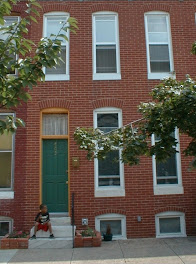By: Raevyn Jones, Marketing Coordinator, NHS of Baltimore
A short sale is a sale of real estate in which the proceeds fall short of the balance owed on the property’s loan. Short sale occurs when a borrower cannot pay the mortgage loan on their property but the lender decides that selling the property at a moderate loss is more efficient than pressing the borrower. Using the short sale process as an alternative to foreclosure is easier for both parties because it allows the bank to avoid hefty fees and it will not hit the borrowers credit report as hard as a foreclosure would.
Before agreeing to do a short sale, borrowers need to make sure that they have a precise understanding of its terms. The most important thing borrowers need to know is that the short sale does not necessarily release the borrower from the obligation to pay the remaining balance of the loan, this is known as the deficiency.
Although it may initially seem as if there are no disadvantages to a short sale, borrowers should weigh out all options before agreeing to go through with a short sale. The main advantage to using short sale as an alternative is that it is less damaging to one’s credit and more helpful to future mortgage applications than a foreclosure. Disadvantages to short sales include the extensive paperwork requirements, loss of equity in home, and property tax will still be payable among many others.
When considering a short sale, borrowers also need to be aware of fraud that can occur during the short sale process. Many business journals have reported that lenders have been engaging in fraud during the short sale process. The fraud involves lenders in second position demanding kickbacks in the form of cash payments from the home buyer or real estate agent. These payments are fraudulent because they are not disclosed anywhere on the closing documents or HUD 1 statement which makes them in violation of RESPA (Real Estate Settlement Procedures Act) rules.
If a borrower begans having financial problems and thinks that their home may be in jeopardy, the first thing they should do is seek the advice of a homeownership advisor. There are many non-profit organizations that offer free counseling and have specialty in dealing with foreclosure prevention and the terms of a short sale.
Thursday, August 19, 2010
Subscribe to:
Posts (Atom)




+for+blog.jpg)
.jpg)
